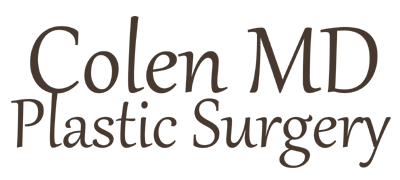Keeping Plastic Surgery Safe
In many cases, plastic surgery gets a bum rap. I’ve been a practicing plastic surgeon for many years, and most of my colleagues I can honestly say do a great job of meeting their patients’ needs–and doing so in a safe way. However, there’s no denying that every surgery, from a kidney transplant to a hair transplant, has certain risks involved. It’s important that patients understand these risks and weigh them against the benefits associated with their selected procedure. Plastic surgery is safe, but there are ways the patient can make it even safer by asking the right questions ahead of time.
The first question she should ask: Is this particular procedure FDA approved? The FDA approves any plastic-surgery procedure that they consider safe and which don’t have a high ate of negative reaction to the patient. Many kinds of plastic surgery are approved by the FDA; a few are not. The best way to find out if your procedure is FDA approved is to ask your surgeon pointed questions about it. It’s never safe to undergo a procedure that’s not been FDA approved.
You should also ask if the results of your plastic surgery procedure will be short term or long term. This is important, because long term results are preferable only if you like those results! Most short-term plastic surgery procedures have the added safety benefit of being impermanent. The answer you get to this question will play a key role in your decision of whether to have the procedure done or not.
A third question you should ask is whether the surgeon performing the procedure is properly certified. In the United States, the number one board that certifies plastic surgeons is the ABPS (American Board of Plastic Surgeons). When you choose a surgeon who is not part of ABPS, you’re choosing someone who has not been adequately screened and determined to have the training necessary to do your surgery well and safely. So only hire someone with ABPS credentials.
A fourth question to ask is whether the facility where the surgeon will be operating is a safe one. You wouldn’t want your dentist pulling your teeth in his basement. Why not be as picky about your plastic surgeon’s surgical facility?
In particular, you should make sure the facility is properly accredited. There are a couple of places which offer adequate accreditation or certification standards. One is the American Association for Accreditation of Ambulatory Surgery Facilities (AAAASF) and another is the Accreditation Association for Ambulatory Health Care (AAAHC).
And one final safety question is what kind of training your anesthesiologist will have. Some facilities use trained nurse anesthetists; even better is to have the anesthesia administered by a trained anesthesiologist–one who has certification with the American board of Anesthesiology.
Keeping plastic surgery a safe field is primarily the work of the surgeons themselves. However, the steps outlines above are some steps that the patient herself can take to make her own surgery a safe one.

